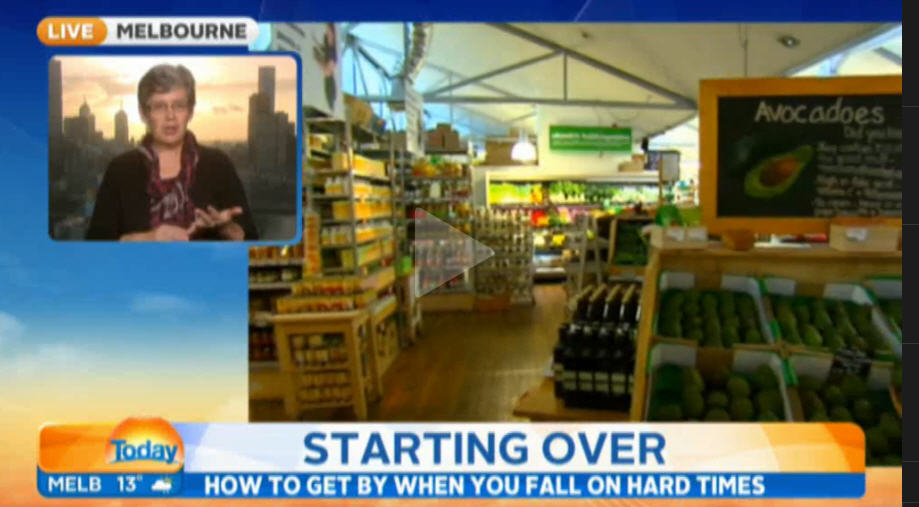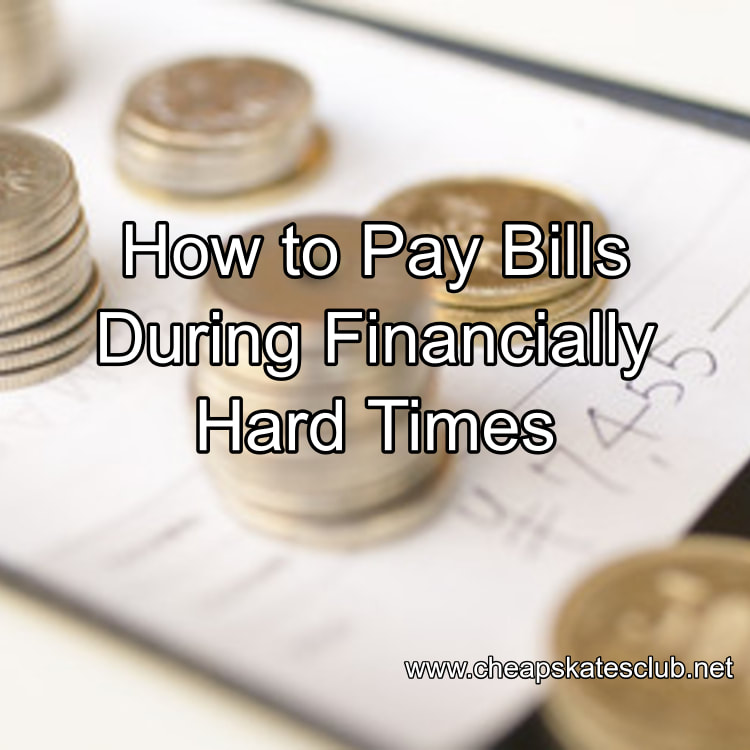|
From mid-September the way electricity in Victoria will be priced is changing. There will be peak, off-peak and shoulder periods and the price will vary according to the time of day, and the day of the week, with the busiest part of most people's day being of course the most expensive. And so I have been thinking.
The off-peak rate runs from 10pm - 7am. This will be the cheapest rate for electricity. I don't know about you but I'm not that keen on staying up at night to do the washing and the floors, and running the dishwasher when the rest of the family is trying to sleep just won't work in our household. Electricity prices are on the rise. It's a catch 22 situation because our reliance on electricity is also on the rise. Almost every appliance in our homes is electric: stoves and ovens, microwave ovens, kettles, food processors, mixers, toasters, sandwich makers, bread makers, washing machines, irons, clock radios, hair dryers, toothbrushes, shavers, heaters, air conditioners, vacuum cleaners, computers, lighting and the list goes on. Many of those appliances have a non-electric version that we could just as easily use, but we've been brain-washed into thinking they are too hard to use or too old-fashioned. They're not! And they slash power use. And that slashes the power bill, saving us all money. I've been curious as to just how much we use electricity because we have it at the flick of a switch, because it's too convenient. In August I put out a challenge to Cheapskates Club members: could they live for 48 hours with access to just 3 hours of electricity a day? The challenge was accepted and the results were interesting. Overall most households managed with a few lifestyle modifications. They all said they wouldn't want to have to live with such limited power forever. So do you think you can live with access to just three hours of electricity a day? Are you prepared to accept the challenge and see if you really can cut your electricity use and slash that bill without compromising your lifestyle? Are you up to the challenge? Just two days, 48 hours, and you can choose the days, to try living with access to electricity for just three hours a day. The rules are simple and more guidelines than rules. You can: 1. Commit to the challenge by leaving a comment below agreeing to participate in the challenge. 2. Spread the word. Talk about it, email it to your family and friends, blog and tweet about it. Encourage as many people as you can to take part. 3. Use whatever appliances you need to during the 3 hours of allowed power time. You could have the TV and every light in the house on if you need too (an extreme example). 4. Break the three hours up any way you want, but once the time is up that's it - no more electricity for the day. We chose 45 minutes in the morning and 2-1/4 hours of an evening. 5. You can use battery powered appliances out of hours. 6. You can use any appliances during the "on" hours. You can't: 1. Use any appliance that requires a power point or light switch during the 21 hours a day you can't access power, the exceptions being fridges and freezers, wired in smoke detectors and any medical aides that must be used (nebulizers, ventilators etc.). I'd like you to keep a diary for the 48 hours, recording what you used and what you found you didn't really need to use, the things you missed, how you filled in TV time if you normally watch TV, how the family filled in the evening without power or lights etc. whether or not you were able to stick to the three hours or just found it unrealistic or impossible, and record the actual amount of power you used in total over the six hours. You can add your diary notes and ask any questions in the comments below. From Debt Free, Cashed Up and Laughing
3 Comments
This is no ordinary run 'o the mill hamper - this is a Cheapskates Style Cleaning Hamper - the best gift ever for the practical people on your gift list.
It will come in at under $20. Cleaning Hamper - $16.10 You will need: 1 plastic bucket - 80c Laundry soap - $2.00 Washing soda - $4.00 Borax - $4.10 White vinegar $1.20 1 packet microfibre cleaning cloths $4.00 Cleaning Tips Grandma Used Cheapskates Washing Powder Print Tip Sheet. Pack all the items into the bucket, wrap with cellophane and tie in a bow with ribbon. You should find all the items at your local supermarket, but if you have time, you'll do better on prices for the microfibre cloths at $2 shops or even a hardware store. For the laundry soap, generic or store brand is fine. A box of four cakes is around $2.20, and you'll find it in the laundry aisle, usually towards the bottom of the shelves. Washing soda (or sodium carbonate) is from the laundry aisle. The common brand name is Lectric Soda, it's in a white packet with red writing on it. You may need to search for it, but it will be there. Borax is the mystery item on this list. Not all supermarkets keep it on the shelf, both my local Coles and Woolworths do, but you need to search for it. It's in the cleaning aisle, towards the pest control section. At Coles the brand is Bare Essentials, in a white tub with a pink lid. If you can't find it at the supermarket, don't despair. You'll get it at a hardware store, and definitely at Bunnings. For the microfibre cloths, if you have the time to zip into your favourite $2 shop, they'll be much cheaper than at the supermarket. If you're pressed for time, check the prices at the supermarket before you toss them in the trolley. Coles sell a pack of three - dusting, glass and kitchen - for $4, Simply Clean. And they're labelled so you know what their use is. Julia writes
"I've just joined Cheapskates (in November), so am relatively new and loving every minute. I'm a little overwhelmed at all the information and struggling to really start. My DH and I have set goals to clear our CC debt this year and to increase our mortgage payment by $120 a week (an extra $6,240 paid off this year!) and on paper we should be able to do it, but our money just seems to disappear - hence joining (we need the inspiration and the motivation). Do you have any suggestions to new members where to start? For example, I have the forum always open, joined the Saving Revolution and bookmarked Tip Store pages so I can refer back to them. Does anyone have any other suggestions we can use to reach our goals this year? What do other members do to get the best out of Cheapskates?" Do you have the answer? If you have a suggestion or advice for Julia, let us know. We'll enter your answer into our Tip of the Week competition, with a one-year membership to the Cheapskates Club as the prize too. This Week's Question: Help needed to keep elderly parents in their home without going broke19/10/2017 Lyn writes
"My elderly folks live on a 46 acre rural property in WA. It's lovely but they have had it for sale for 9 years as NO ONE is buying...They took out a reverse mortgage when they first put it on the market, thinking they would sell the property shortly after...BUT the mortgage it is eating away at their equity, as it costs a lot to maintain the property - especially on a pension. Mum recently became very sick and has been in hospital for 5 weeks. And Step-Dad, at 82, is trying to run the house, let alone the property by himself. They live 9km from the nearest town, 50 minutes from their doctor and the hospital. I need advice about where to go to find assistance for them. As they (and the bank) own their only asset - that they can't sell, they are limited with the assistance they can receive. I'm sure they're not alone. We live in the city, our house is small and we have a young family. We've offered for them to move in with us but they would like to maintain some independence if they possibly can. Any suggestions would be gratefully appreciated. Thank you." Do you have the answer? If you have a suggestion or idea for Lyn let us know by leaving it in the comments below. We'll enter your answer into our Tip of the Week competition, with a one-year membership to the Cheapskates Club as the prize too. Kate writes
"My husband and I have two small kids – 5-1/2 and 2 years old. I work 3.5 days a week and my husband works full-time. We have an investment property (we're paying interest only on the mortgage as our accountant advises) and we live in a rental property. My question is, do any of your members have any recommendations about how to save and create harmony when I VERY much want to save money to buy a family home for us to live in and my husband, who is a spender, isn't prepared to have a conversation about budgeting or saving? I know that $$ is one of the main things that people argue about and otherwise our relationship is great, but I want to have security for our kids and build towards our retirement." Do you have the answer? If you have a suggestion or idea for Kate let us know, by leaving it in the comments below. We'll enter your answer into our Tip of the Week competition, with a one-year membership to the Cheapskates Club as the prize. And keep an eye open, you may even see your answer in next week's newsletter. MN writes
"I am in dire need of help with huge debt. My first issue is denial, unable to collect my mail out of letterbox knowing I will collect bills and I just don't want to see them. Is there any help in this situation? Thankyou. Do you have the answer? If you have a suggestion or idea for MN let us know, by leaving it in the comments below. We'll enter your answer into our Tip of the Week competition, with a one-year membership to the Cheapskates Club as the prize. And keep an eye open, you may even see your answer in next week's newsletter. This morning I was up at the crack of dawn. Actually I was up well before the crack of dawn as I had to be in at Docklands at the Channel 9 studio for a Weekend Today segment. I left home at 6.35am and it was still dark, but being a Sunday the traffic was light and I had time for a coffee before I checked in.
When I took the call about doing this segment I was so excited. This is something I know about. It's something I've experienced. It's something I've lived through. It's the reason I started the Cheapskates Club. In the space of 72 hours we went from a two income family of four to a no income family of four with one on the way and half a house, waiting to be renovated, a mortgage to pay plus all the usual living expenses. It was a disaster. Like most people we knew we lived pay to pay. We had credit cards and we used them. We had a mortgage. And we had never heard of anything as sane and sensible as an Emergency Fund. To say we were stressed is an understatement. It took me six long months to get my act together and realise that we could sink and lose everything we had worked for or we could change our attitude and our habits and get through what I thought would be a temporary hiccup. As it turns out that was one long hiccup - three years in fact. We survived, and from that disaster we grew stronger and much, much wiser and learned some valuable life lessons too. Losing a job is a very stressful thing. But it's not the end of the world. You can control the way you react to job loss to ensure you come through stronger and happier or losing everything. Take Stock Firstly don't panic it is wasted emotion and energy. Take half an hour to sit down and take stock. Get out your budget and have a look at your bank account and Emergency Fund. Do a pantry, fridge, freezer and garden inventory and make a list of the meals you have in the house. This will tell you how long you can survive without an income and how long you have to find another job. It may be a month; it may only be a week. Either way you need to know how long your money will last. Stop Spending You would think this would be a no-brainer but there are those people who spend in times of emotional crisis, even though they know they shouldn't. You have nothing coming in to replace what you spend, so cut back on everything. Go back to the absolute bare essentials. No new clothes, toys, plants, books, eating out or takeaway, limit trips in the car to reserve petrol. If you do need to buy something look for the least expensive way: can it be bought second-hand? Could you get it free from Freecycle? Do you already have something that will do the same job? Will you find it at a garage sale or op shop? Be ruthless with your grocery shopping. When we lost our jobs the groceries were the first thing to be cut back. Cleaning supplies were the first to go, replaced with a bottle of generic white vinegar, a box of bicarb soda and some elbow grease. Then the processed foods went: biscuits and cakes, snack foods, cereals (except for Weetbix and rolled oats), most tinned foods. Brand names became a thing of distant memory. Generic labels became my best friends. If you have a favourite brand product and it has a cheaper alternative you are just going to have to suck it up and buy the cheaper alternative. You can't afford brand names. It's not forever, just until you get back on your feet. If you're not working you'll have more time to cook from scratch. Buying basic ingredients costs a fraction of the price of the ready-made foods so you can still enjoy your biscuits and cakes, muesli bars, snack foods and drinks. The difference, apart from the cost, will be that you made them rather than bought them. There are over 1,400 recipes in the Cheapskates Recipe File, all of them good. There is even a $2 Dinner category and of course the Bare Bones Groceries meal plan and shopping lists are on the Printables page. Go back to tracking your spending. It's all the little things you buy that do the most damage. By recording every cent you spend, on the newspaper, that can of soft drink, the groceries, the phone bill, the power bill, petrol and so on you'll see where the money is going and the areas that can be trimmed. Switch to a Cash Only Budget If you haven't already, stop using those credit cards. If you don't have the money to buy something, what makes you think you will have the money to pay for it when the credit card bill comes in? Now is not the time to be getting deeper into debt. Get on the Phone If you are going to be out of work for longer than two weeks, get on the phone and let your creditors know. Contact the credit card company, your mortgage lender and any other creditors and explain the situation to them. Let them know you want to continue to make payments and ask if they can be reduced for a limited time. Most creditors are sympathetic and understanding if you contact them immediately, before your accounts fall into arrears. Make Finding a Job Your Job Spend time every day actively looking for work. Register with agencies, look through the papers, and look online. Be brave and look at jobs that are new to you. Paper qualifications are good, but experience is valuable too. Don't think that you can't do a job because you don't have the paper that says you can. Of course there are exceptions to this, but for the most part experience and common sense are worth more than the degree. Get your resume up to date and have it ready to email with job applications. Get copies printed ready to take with you to interviews too. Answer your phone professionally when it rings, it may be your future employer. Don't let your personal grooming slide. This is your job until you find a new one. Keep Busy Depression will set in very quickly if you do nothing. Don't sit in front of the TV or computer all day. Get up each morning with a list of things to do. Look for work, weed the garden, paint the fence, fix the dripping tap, and clean the car, bake bread, volunteer at a local charity. Do not sit, idle all day, thinking about "poor me". It won't get you anywhere. Take Work that is Offered to You Now is not the time to be proud. If you are unemployed, you don't have an income. When someone offers you work, either temporary or permanent, take it. You need the money and the job. Look for part-time work - deliver pizzas, mow lawns, take in ironing. They may not be your dream jobs but they aren't forever. They are just to keep cash coming in. Wayne did all manner of things while he was looking for full-time work. He fenced paddocks, picked pumpkins and tomatoes, would get up at 3am to go out to a feedlot and put out the feed, ploughed paddocks and did odd jobs all over the district to earn some money. None of those things was even close to his trade, he did them because he had to have a job. Don't think that any job is beneath you. Work is work. Look at the Long Term Picture If you believe it is going to take more than a couple of weeks to find work (it took us over three years to find permanent, full-time work) you may need to think seriously about your lifestyle. Having money to pay the bills, put food on the table and keep a roof over your family's head are the top priorities. If you can't find any work you may need to sell some possession, downsize your home or car (or both), move to a less expensive area or change the children's schools. You may even need to move interstate, as we did. And Lastly Build an Emergency Fund As soon as you have an income start socking some of it away in an Emergency Fund. Years ago I would have said three months’ worth of living expenses was plenty. These days I suggest you aim for at least 12 months’ worth of living expenses. You won't be able to save that much straight away. Work at it every week. Start with just $10 if that is what you have and in a year you'll have $520. Add to it with bonuses, tax refunds, birthday money, money from garage sales - any extra cash that comes your way. An emergency fund gives you security and relieves the stress a financial hiccup, be it a week, a month or three years long, can cause. Although when it happens it seems like it is, financial hardship isn't the end of the world. When disaster struck us, I thought it would be the end of our hopes and dreams. Instead it turned out to be the best thing that ever happened to us. If we hadn't lost our jobs, with two little boys, a new baby on the way, half a renovated house, a mortgage and bills to pay, we would never have started living the Cheapskates way, learning how to live life debt free, cashed up and laughing and we would never have started the Cheapskates Club. From Debt Free, Cashed Up and Laughing Unfortunately, the bills don’t stop even if the pay packet does. There is still a financial responsibility to your creditors. If you're facing financially hard times it’s time to sit down and come up with a game plan.
The reality is that there are certain bills that can’t go without being paid. Your family needs a home to live in and the basic comforts like heat, electricity, transportation and a working telephone. These are the bills that warrant getting paid first. For the telephone, there is no rule that says you need a mobile phone and a landline. Some people use their mobile phone as their only number. This saves on the cost of two telephone services. What about food? Everyone needs to eat. You can lower your food costs with store sales and shopping in bulk when necessary. Visit the butcher shop and have them cut up your meat to save money. Read the $300 a Month Food Challenge posts in the weekly newsletters. You find them all in the Newsletter Archive on the Cheapskates Club website. If money is tight, entertainment is often the first to go. You may have to do without cable television or cut back to the basic channels since everything has gone to digital signal. If you want to watch movies, purchase the ones you like when they are on sale. This way you can watch them over and over without paying any additional fees. When there is nothing else you can cut and money is still stretched too far to meet all the bills, it is probably time to call the creditors. No one wants to do it but you will have a more favorable outcome if you call them before your bills start falling behind. If you have been a good customer who has had on-time payment in the past, they will help you to make your payment in some form without ruining your credit. For your monthly utility bills, there is a service many of them offer called the Equal Payment Plan. Here, you can enroll in the program that averages your monthly usage and comes up with a payment amount that stays constant. This will help you avoid larger bills in the summer or winter months. A plan like this also makes budgeting limited funds a whole lot easier. As for any credit card bills, making a payment arrangement won’t adversely affect your standing with them or the credit companies. When you are back on solid financial footing, you can resume your normal payments. When the economy is down, it affects everyone, but bills are still going to come due. Use the above tips to help you stay afloat in hard times. Living on a budget is the key to financial freedom, but getting started can be frustrating. When we look at our expenses and see all of those bills we're paying every month, it's easy to throw our hands up in disgust. But what about all those little expenses we incur? You might be surprised to find out just how much they amount to.
It's easy to dismiss cutting back on little things. A few dollars a month won't make a significant difference in the big picture. But a few dollars here and a few dollars there adds up to a few more dollars. When you cut back in a lot of small ways, you could end up with a lot more money at the end of the month. From Debt Free, Cashed Up and Laughing I watched a fascinating documentary today about Warren Buffet, who takes turns at being the world's richest man with Bill Gates. It's called The World's Greatest Money Maker: Warren Buffet
Mr Buffet has a personal wealth that is estimated to be more than $37 billion. His company, Berkshire Hathaway is worth $150 billion, he owns a quarter outright. So what makes this billionaire different to all the other wealthy people in the world? His attitude to money. This man lives life frugally, he embraces the Cheapskates way of life and is proud to say so. He lives with his wife in the house they have lived in for over 50 years. He and his wife raised their three children in this home, and they were by no means spoiled. Indeed his son Peter tells the story of asking his dad for $5 so he go out with his friends and buy McDonalds for their dinner. His father gave him the $5, but he told him to bring the change back (which we have always done with our kids). He said it with a smile, but he meant it. He wanted the change. His wife clips coupons and shops on a budget. She runs the household on a strict budget and lights are turned off when no one is in the room, food isn't wasted and nothing is thrown away unless there is absolutely no other use for it. Bill Gates says of Warren Buffett "he has never ramped up his ability to consume". What a testimonial! he lives as he did when he had no money and was a struggling young husband and father! A lesson to learn for all of us. In this day and age of out of control consumerism, knowing the richest man in the world shuns it is an incredible example for anyone wanting to live the Cheapskates way and enjoy debt free, cashed up life. But for me the thing that sets Warren Buffet apart from other wealthy people is that he doesn't judge what he does by the standards of other people. Instead, he lives the way he does and works the way he does so he can enjoy the things in life that are important to him. Just like we do. I've always said we choose to not spend our money on things that aren't important to us so we have the money to spend on the things that are. It's why we are Cheapskates and live the Cheapskates way, to live life debt free, cashed up and laughing. This post was first published at Debt Free, Cashed Up and Laughing |
Archives
April 2020
Categories
All
|






 RSS Feed
RSS Feed